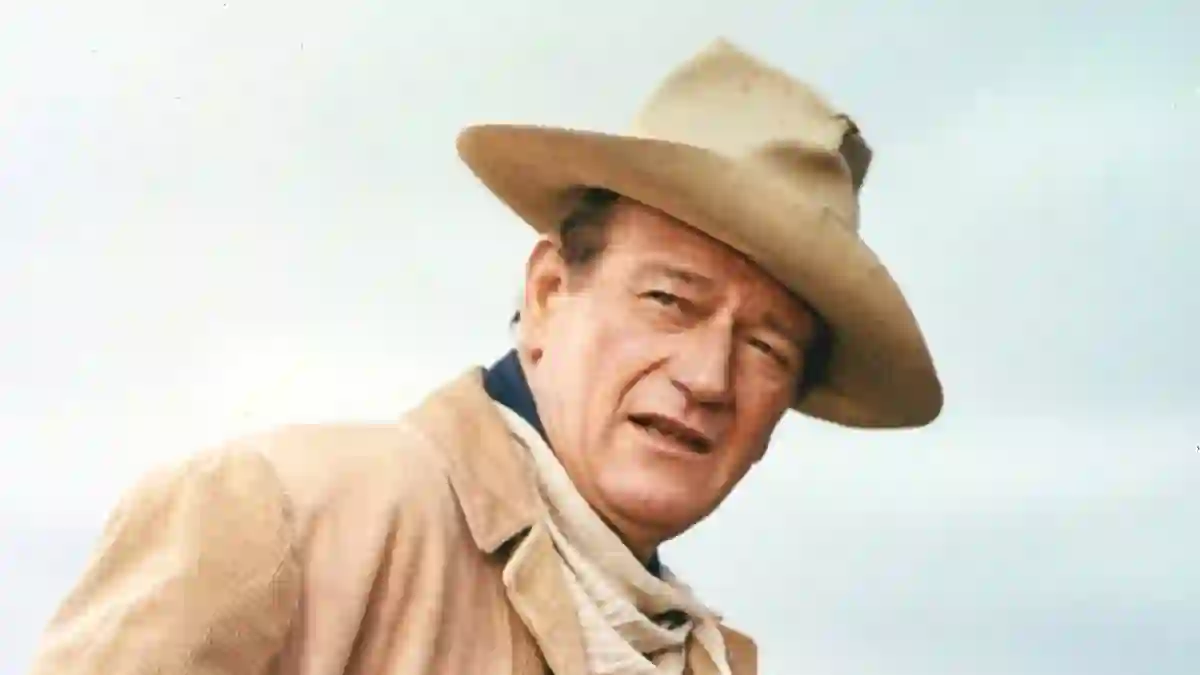John Wayne is a name that often evokes images of rugged cowboys, heroic soldiers, and classic Hollywood charm.
For decades, he was one of America’s most iconic movie stars, especially in the Western genre.
But while many admired his on-screen presence and tough-guy image, behind the camera, the atmosphere wasn’t always as legendary—or as pleasant.
On-Set Storms and Tense Moments During Hondo
One of the most revealing accounts comes from actress Geraldine Page, who starred with Wayne in the 1953 Western Hondo.
According to her, the set could be a stressful place, especially during the mornings.
She claimed that Wayne would often show up hungover and begin the day with a loud outburst.
“Every morning he’d start yelling,” she recalled.
“He’d scream at someone until he was hoarse.
It was usually over some technical issue—and he was always right, but it was intense.”
The Child Actor Who Didn’t Back Down
Things reportedly became even more uncomfortable when it came to working with the young actor Lee Aaker.
Page alleged that Wayne would become visibly irritated when Aaker didn’t respond the way he wanted during scenes.
“He kept trying to bully the child into doing what he wanted,” she said.
“And when the boy stood his ground, Wayne would make him do the scene over and over.”
George Takei Shares His Own Unsettling Experience
Another star who shared concerns about Wayne’s behavior was Star Trek legend George Takei.
He worked with Wayne in the 1968 war film The Green Berets, which wasn’t well received critically.
But what shocked Takei wasn’t just the movie—it was what he saw on set.
Takei said Wayne had a disturbing habit of picking one person—usually a large, strong man like a stuntman or stand-in—and verbally targeting him in front of the crew.
“It was so uncomfortable,” Takei said.
“He did it to one guy, constantly tearing him down, day after day.
Later, I found out he did this on almost every production. It was like a twisted ritual.”
Takei described it as Wayne’s way of asserting dominance: “He needed to prove he was the top dog.
It wasn’t about the work—it was something psychological.”
Controversial Views That Sparked Outrage
Beyond the movie sets, John Wayne’s reputation also took a major hit from his now-infamous 1971 interview with Playboy magazine.
In it, he made deeply racist and homophobic remarks that continue to tarnish his legacy.
Among his shocking comments: “I believe in white supremacy until the Blacks are educated to a point of responsibility.”
He also said he didn’t feel guilty about slavery and claimed Native Americans were “selfishly” holding on to land that others needed.
And when it came to LGBTQ representation in films like Midnight Cowboy, Wayne openly insulted the characters with slurs and called such films “perverted.”
A Complicated Legacy for a Hollywood Giant
John Wayne’s career was massive by any standard.
For almost 30 years, he was one of the biggest names at the box office.
Classics like Rio Bravo, The Searchers, Stagecoach, and True Grit—which won him an Oscar—cemented his place in cinematic history.
He passed away from stomach cancer in 1979 at the age of 72.
A year later, he was awarded the Presidential Medal of Freedom, one of the U.S.’s highest civilian honors.
But in recent years, many have questioned whether that honor fits with the full picture of the man, both on set and off.
Wayne may still be remembered for his film roles and larger-than-life persona—but behind that iconic image lies a legacy that’s a lot more complicated than most people ever realized.
